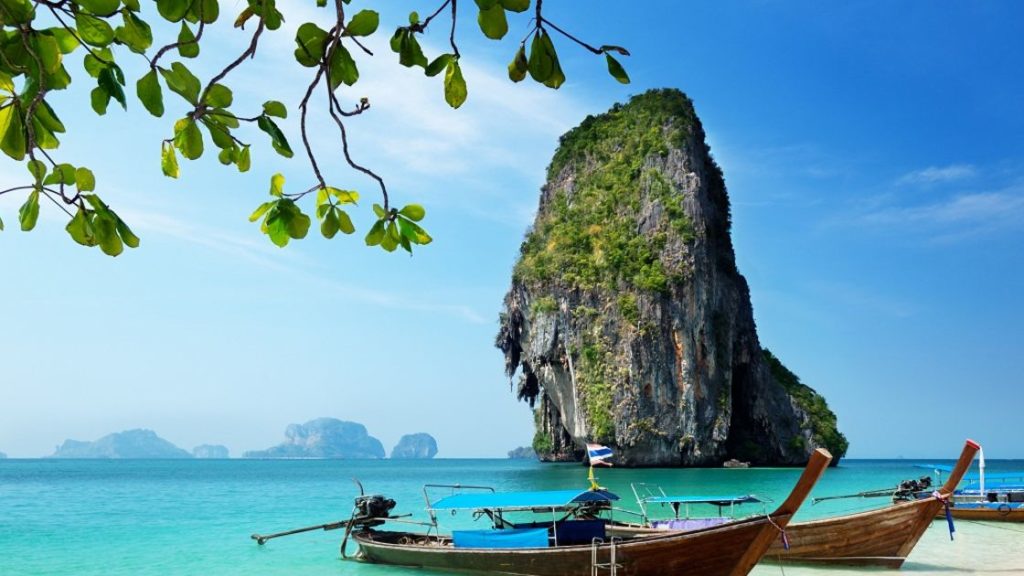
Thailand as a Psychosocial Construct
A few weeks ago, I was in Thailand to race my bicycle. Now, that sounds like an exotic, alluring and indulgent confession. Or worse still, a blog that starts with a #humblebrag. It’s not, it is the opener for another rant on my part. Which probably makes this even more indulgent. But bear with me, there is sense to this seeming self-indulgence; that ‘Thailand’ doesn’t exist, and Thailand is a pretty mediocre holiday destination. It is the gold standard of mediocrity ( in the category of holiday-making at least) in a world that is increasingly tending towards an inoffensive, palatable median. And if you don’t already agree with me, then it’s likely that you may already be part of this profitable collective delusion that it is not….
‘Thailand’ (as opposed to Thailand), is an incredible collective folk legend in which many are invested. Say ‘Thailand’ to anyone in a major global city, or anywhere in a temperate, developed (post-/) industrial nation, and it instantly evokes paradise island idylls. It’s backpacker adventures, away-from-it-all-Luxury, freedom and exploration, endless massages, being waited on hand and foot by lithe young men and women and raging undertones of, primarily sexual, domination of the other. These ideas of escape, freedom and power; underpinned by assumed economic leverage and cultural superiority, are the product we are being sold. Fascinatingly, this is not longer just a Western Orientalist fantasy, it’s an Eastern Orientalist fantasy too. Ask any middle-aged, middle-class dentist or desk-jockey in Singapore, Shenzhen or Seoul… Thailand is to escapism what Paris is to High Culture. It is a totem. THE totem And like Paris has its very own Syndrome, brought about by the gaping abyss between the idea and the reality, ‘Thailand’ Syndrome is a clear and present danger.
Simply put, for all the imagined allure, the reality of Thailand is that it is a tourist conveyor belt. An early Asian entrant into the global tourist industry, it became synonymous with the West’s orientalist fantasies, as captured in Alex Garland’s The Beach, and most sinisterly evoked in Houlbecq’s Platform. And now in an economically multipolar, globalised world has continued to sell these on to any bidder. It positioned itself as a passive, untrammelled territory ready to be ‘discovered’ by any white tourist daring enough to get on a commercial airliner. Ever-cheapening global air-travel has democratised the Thailand ideal, not just to these new colonialists, but also Asia burgeoning middle class. I do not resent the democratisation of travel, but as a destination, it trades off the illusion of distance, of carefully manicured exoticism and ‘eastern promise’.
When you travel halfway round the world and spend half a month’s wages to get a piece of this illusion you are already invested. You’ve bought the idea before you bought the ticket. You have too much emotionally riding on that expense to see anything over than what you want to see; it is white sands, drinks in coconuts and sex under palm trees. But deep down, you know the reality is just another commoditised destination. You feel it as soon as you step of the plane to get your transfer bus, or if you kid yourself that you are somehow ‘roughing it’, to haggle with your cut-throat, small-C capitalist cabbie. Every overpriced bottle of mineral water or lacklustre excursion, plays on you subconscious intuitive awareness that you are simply an optimised asset class in a global game. But you tell yourself that it’s a ‘A Holiday of a Lifetime™’ and you take the pictures, instagram the illusion and Facebook the fallacy. And that is how the mythology becomes a kind of cultural Ponzi scheme; as long as we all keep paying in, none of us need to face up to the middling holiday that we just shelled out for. None of us need to face that Thailand is in fact like any other heavily developed tourist destination, selling Made-in-China (or rather now, Vietnam) tourist tat, with half-scruffy beaches lined with umbrella bars, drunk spring-breakers, confused Japanese tourists, pink-drunk Brits and local hustlers. It’s the Costa del Sol via Edward Said.
There are undoubtedly undiscovered corners, hidden beaches and empty vistas, but during your ‘Seven days in the Sun’, you will be funnelled to any one of a number of hotspots with other sunburnt globe-skippers such as yourself who are kidding themselves that they have come to somewhere otherworldly. More than anywhere else, Thailand represents how modern tourism sells ideas rather than places or cultures. It markets the idea of travel in a reality that is ever more touristified, commoditised and homogenised
Category: culture